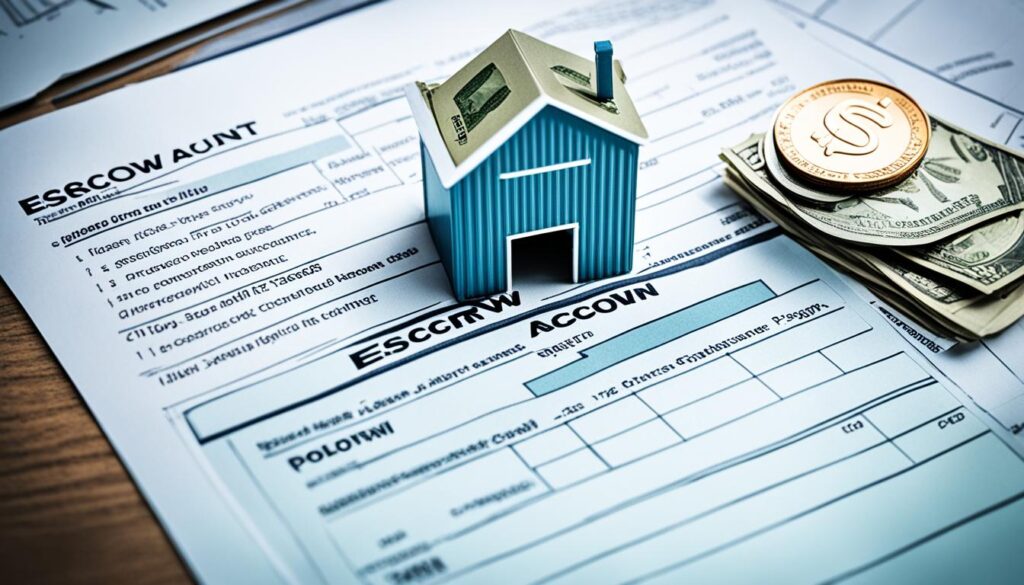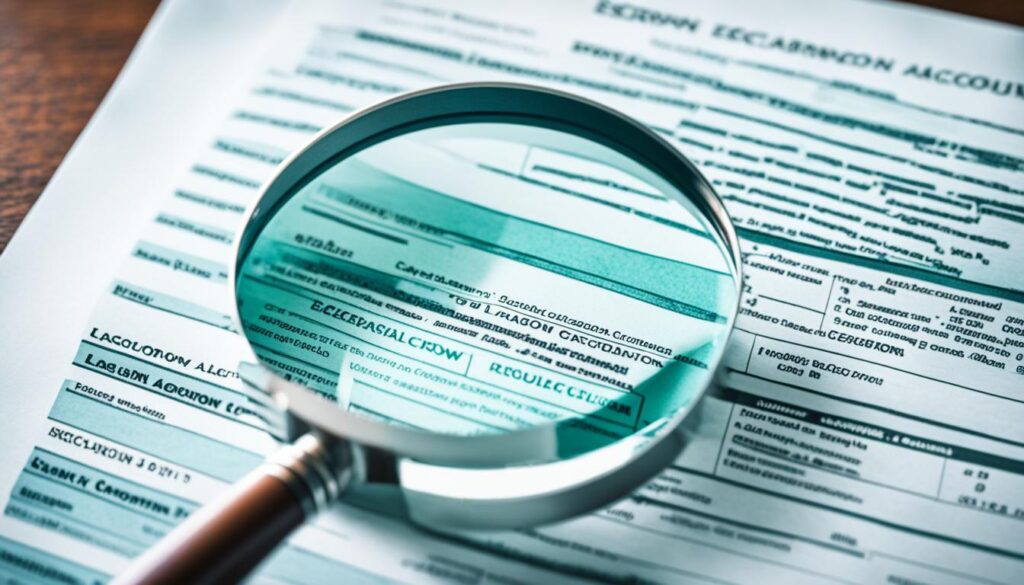How Does Escrow Account Work? A Simple Beginners Guide
Have you ever wondered about the “escrow” process in real estate? What is an escrow account and how does it affect your mortgage payments? If you’re new to owning a home, escrow accounts might seem hard to understand. But don’t worry, I’ll explain it in a simple way.
When you buy a home, your lender might create an escrow account. They put part of your monthly payment into it. This money covers things like property taxes, insurance, and private mortgage insurance. This way, these important payments are made on time to others, like your government and insurance companies.
Honestly, I had no idea what an escrow account was until I had a major issue with a big transaction. Just between you and me, I was terrified. This reminds me of the time I tried to buy a car online without any protection—total disaster. But long story short, that mess led me to discover the magic of escrow accounts. Believe it or not, they can save you from a world of trouble. So, let’s dive into the world of escrow accounts, the best countries to set them up, and how to get started.
Your lender figures out how much you’ll need for taxes and insurance each year. They split that by 12 and add it to your monthly mortgage bill. Every month, they put the escrow part of your payment into the account. They use this money to pay your insurance and taxes when they’re due.
Key Takeaways
- An escrow account is set up by your lender to cover costs like property taxes and insurance premiums.
- Your lender calculates the annual tax and insurance payments, divides the amount by 12, and adds it to your monthly mortgage statement.
- The escrow portion of your monthly payment is deposited into the account and used to pay your taxes and insurance when due.
- Escrow accounts help ensure that these essential payments are made on time, avoiding penalties and late fees.
- Understanding how an escrow account works can help you better manage your monthly mortgage expenses.
What is an Escrow Account?
Definition and Purpose of an Escrow Account
An escrow account is a way to keep funds safe during a deal. In real estate, it helps both the buyer and seller. It makes sure the seller gets paid after the buyer gets the house. And it keeps the buyer safe from scams by fake sellers.
These accounts hold things like the earnest money deposit, repair costs, insurance, taxes, and fees. The lender takes a part of the yearly cost and adds it to your monthly payment.
In a nutshell, an escrow account is a financial arrangement where a third party holds and regulates payment of funds required for two parties involved in a given transaction. The funds are only released when all the terms of an agreement are met. It’s kind of like having a trusted friend hold onto your money until you’re sure the deal is legit.
Having an escrow account helps the lender keep the earnest money safe. It also helps with mortgage payments by setting aside money for taxes and insurance. This way, you don’t have to pay a lot at once.
“Escrow is a legal agreement where a neutral third party holds on to funds or assets during a transaction.”
The purpose of an escrow account is to protect everyone in a home sale. It makes sure the buyer pays and gets the house. And it stops buyers from being tricked by sellers who don’t own the house.
How Does an Escrow Account Work?
Benefits of Escrow Accounts
Here’s the thing: escrow accounts provide security and peace of mind. If I’m being honest, knowing your money is safe until both parties are satisfied with the transaction is a huge relief.
- Security: Your funds are protected until all conditions are met.
- Trust: Both parties know that the transaction is handled fairly.
- Conflict Resolution: Escrow services help resolve disputes effectively.
- Convenience: Simplifies large transactions, especially in real estate and online deals.
Escrow accounts are key in real estate deals. They make sure payments are made safely and on time for both buyers and sellers. They help protect everyone’s money during the home-buying process.
When you get a mortgage, you’ll need to open an escrow account. This account holds money for your property taxes and insurance. The lender figures out how much you’ll need each year and splits it into monthly payments. This money is added to your mortgage payment.
- Every month, the lender puts your escrow payment into the account.
- When it’s time, the lender pays your taxes and insurance with the escrow money.
- The lender might ask for extra money, called an “escrow cushion,” for unexpected costs.
- If you pay too much, you’ll get the extra money back or it will be credited to you.
Escrow accounts aren’t just for real estate. They’re also used in legal deals, mergers, and online sales. Everyone involved can trust that their interests are safe with an escrow service.
“Escrow accounts ensure that payments for property bills are made on time and in full by using funds from the escrow account to pay them when due.”
The way escrow works can change based on the deal, but its main goal stays the same. It helps make sure deals are safe and clear for everyone. Whether you’re buying a house, selling a website, or making a big deal, an escrow account can help make it go smoothly.
In short, escrow accounts are very important, especially in real estate. They handle your property taxes, insurance, and other costs. This keeps everyone’s interests safe and makes deals more reliable.
Setting Up Your Mortgage Escrow Account
When you get a mortgage for a home, setting up an escrow account is a key step. This account pays your property taxes and insurance for you. It makes sure these bills get paid on time.
Calculating Escrow Amounts and Monthly Payments
Your lender will first figure out how much you’ll need for taxes and insurance each year. Then, they’ll split this by 12 to find out your monthly payment. This money goes into your escrow account every month.
Your lender will use this money to pay your taxes and insurance when they’re due. They might also ask for an “escrow cushion” to cover extra costs. This is usually two extra payments, helping to avoid running out of money.
- Lender calculates estimated annual property taxes and insurance costs
- Lender divides the total by 12 to determine the monthly escrow payment
- Lender may require an additional “escrow cushion” of 2 monthly payments
- Escrow portion is included in your monthly mortgage payment
- Lender uses the escrow funds to pay your property taxes and insurance on time
Setting up your mortgage escrow account is a big part of buying a home. It makes sure your taxes and insurance get paid without you having to remember due dates. Adding these costs to your monthly mortgage payment gives you peace of mind and convenience.
Can You Avoid Having an Escrow Account?
Many mortgages need an escrow account, but you might not have to. The loan-to-value (LTV) ratio helps decide if you need one. If your loan is 80% or less of your home’s value, you might pay taxes and insurance directly.
If you have less than 20% equity, you usually need an escrow account. FHA and VA loans also require one for taxes and insurance.
Some lenders let you pay taxes and insurance yourself. But, think about the risks. Missing payments can lead to penalties, extra fees, or losing your home.
- Conventional loans with 80% LTV or less might let you skip escrow, if you meet the lender’s rules.
- FHA and VA loans always need an escrow account, no matter your down payment or equity.
- Lenders might charge a fee, about 1/4 to 3/8 of a point, for not using escrow, to cover risks.
- Not having an escrow account means you must pay property taxes and homeowner’s insurance on time, which can be hard.
In summary, you can avoid an escrow account in some cases, but think it over carefully. Talk to your lender to know the rules and what it means for your loan.
Should You Set Up an Escrow Bank Account?
Deciding on an escrow bank account is a big step for homeowners. It can make payments easier and ensure they’re on time. But, it’s key to look at both sides to see if it’s right for you.
Pros and Cons of Managing Escrow Yourself
If you’re good at saving and can set aside money for taxes and insurance, managing your own escrow might be best. You get to control your money and might earn interest. But, you must be careful and plan well to pay on time.
But, if saving is hard for you or you spend too much, letting your lender handle escrow might be smarter. Not paying on time can lead to penalties or losing insurance. The ease and peace of mind from an escrow account might be worth it.
| Pros of Managing Escrow Yourself | Cons of Managing Escrow Yourself |
|---|---|
| Retain control over your finances | Risk of missing payments and facing penalties |
| Potential to earn interest on escrowed funds | Requires disciplined saving and planning |
| Flexibility in how you manage your money | Potential for lapses in insurance coverage |
Choosing to set up an escrow bank account or manage it yourself depends on your saving habits. Think about your finances and the benefits of an escrow account before deciding. Pick what’s best for you.
Who Manages Your Escrow Account?
When you buy a home with a mortgage, your lender sets up an escrow account for you. This account holds money for your property taxes and insurance. It’s safe and ready when you need it.
Your lender looks after your escrow account. This could be a bank, a mortgage company, or another financial group. They make sure your property taxes and insurance payments are paid on time. If they don’t, they could face penalties or late fees.
You don’t have to remember to pay these important bills. Your lender takes the money from your escrow account each month, along with your mortgage payment. This makes managing your escrow account easy for you.
Even though you don’t handle your escrow account directly, your lender must give you an annual statement. This shows what money was put in, what bills were paid, and any changes to your escrow amount.
| Escrow Account Management Responsibilities | Performed By |
|---|---|
| Collecting and holding funds for property taxes and insurance | Lender |
| Making timely payments to taxing authorities and insurers | Lender |
| Providing annual escrow account statements | Lender |
| Ensuring compliance with applicable laws and regulations | Lender |
By letting your lender manage your escrow account, you can enjoy being a homeowner. You know your bills are being taken care of responsibly.
Escrow Process for Home Purchase
Role of Escrow Agent and Earnest Money Deposit
When a buyer and seller agree on a home, the next step is escrow. A neutral third party, the escrow agent, holds the earnest money. They make sure the funds and property are transferred correctly.
The earnest money is usually 1% to 3% of the sale price. It shows the buyer’s commitment. The escrow agent keeps this money safe until the sale is done and the title is given to the buyer.
The escrow process protects both the buyer and seller. The escrow agent helps exchange money, documents, and the property title. They make sure all sale conditions are met before the deal is done.
The escrow agent checks if the transaction is real. They look at the purchase agreement and make sure all documents are right. They also move the money from the buyer to the seller. The agent takes care of taxes, fees, and other costs too.
This process usually takes about 50 days. But it can take longer if the sale is complex or the market is busy. The escrow agent works hard to make sure the ownership transfer is smooth and safe for everyone.
“The escrow process is a crucial step in the home buying journey, ensuring that the transaction is conducted in a fair and transparent manner for all parties involved.”
Escrow Protections for Buyers and Sellers
Escrow accounts are key in real estate deals. They make sure both buyers and sellers feel safe. These accounts hold money until everything is done right.
For buyers, escrow means peace of mind. They put down 1% to 3% of the home’s price in escrow. This keeps their money safe until the deal is done. The seller can’t touch it until all checks are passed.
Sellers also get protection from escrow. The escrow checks if the buyer has the money ready. This makes sure the seller gets paid when the property is handed over.
Escrow makes buying and selling homes easier and safer. It keeps money and papers safe from fraud or missing payments. This is very important in big deals.
| Escrow Protections for Buyers | Escrow Protections for Sellers |
|---|---|
|
|
Escrow is a big help for both buyers and sellers. It makes deals more secure and trustworthy.
“Escrow is a key tool in real estate. It makes sure everyone does their part before money and titles change hands.”
Escrow Account for Property Taxes and Insurance
Benefits of Using an Escrow Account
When you own a home, your mortgage servicer sets up an escrow account. This account helps pay your property tax and insurance each month. It makes sure these bills get paid on time, so you don’t get hit with late fees.
Using an escrow account is super convenient. You don’t have to remember to pay for taxes and insurance separately. The lender takes the money from your account each month and pays the bills for you. This makes budgeting easier and keeps you from missing deadlines.
| Benefit | Description |
|---|---|
| Timely Payments | Escrow accounts ensure your property taxes and homeowner’s insurance are paid on time, preventing late fees and penalties. |
| Budgeting Simplicity | Escrow consolidates your monthly payments into one, making it easier to manage your housing expenses. |
| Potential Interest Earnings | Some escrow accounts may pay interest on the account balance, potentially at higher rates than other personal deposit accounts. |
| Lower Mortgage Rates | Lenders may offer lower mortgage interest rates as an incentive for setting up an escrow account. |
Using an escrow account for property taxes and insurance also means you don’t have to make big payments all at once. The money is saved up in the account, making it easier to handle these costs.
Some escrow accounts even earn interest, which can be a nice bonus. This can help you save more money over time.
An escrow account for property taxes and insurance might make your monthly mortgage payment a bit higher. But, the benefits like on-time payments, easier budgeting, and possible interest earnings are worth it. For many homeowners, especially those with small down payments or tight budgets, an escrow account is a big help.

Escrow Fees and Closing Costs
Escrow fees are a big part of buying a home. They cover costs like paperwork and other tasks. These fees are part of what buyers pay at closing.
Escrow fees usually take 1% – 2% of the home’s price. So, on a $200,000 home, fees could be $2,000 to $4,000. There might also be a flat fee for the escrow officer’s work.
But escrow costs aren’t just the agent’s fees. They also include things like attorney fees, mortgage fees, taxes, and insurance. These fees add up.
The good news is, escrow fees can be split or negotiated. This means buyers might not pay all of them. It depends on the deal.
| Escrow Fee Breakdown | Average Cost |
|---|---|
| Escrow Agent Fee | 1% – 2% of home price |
| Real Estate Attorney Fees | Varies by location |
| Mortgage Origination Fees | 0.5% – 1% of home price |
| Property Taxes | Varies by location |
| Homeowners Insurance Premiums | Varies by policy |
| Title Insurance Premiums | Varies by location |
Escrow fees change a lot based on the home’s price, location, and the deal’s details. Knowing about these fees helps buyers and sellers get ready for closing. It also helps them negotiate better.
Pros and Cons of Having an Escrow Account
An escrow account is when a third party holds money for two people in a deal, like a buyer and seller. It has good points and bad points. Let’s look at both sides of escrow accounts.
Pros of an Escrow Account
- Protects your deposit when buying a home: Your earnest money is kept safe in an escrow account until the deal is done.
- Helps you manage property taxes and insurance: You pay a bit each month for taxes and insurance, not all at once.
- Ensures timely payments: Your escrow account helps pay for taxes and insurance on time, avoiding late fees.
- Potential for discounts: Some lenders give you lower interest rates or costs if you use an escrow account.
Cons of an Escrow Account
- Higher monthly mortgage payments: Your monthly payment goes up because of the escrow amount.
- Potential for inaccuracies: Escrow uses guesses for taxes and insurance, which can cause problems with your payments.
- Reduced investment opportunities: Money in escrow doesn’t earn interest, so you miss out on making more money.
- Escrow account fees: Lenders charge extra to keep your escrow account, adding to your costs.
- Increased risk of fraud: Scammers might target escrow accounts, putting your money at risk.
In conclusion, the pros of escrow account are safety, ease, and possible savings. But, the cons of escrow account include higher payments, mistakes, less money to invest, and fraud risks. Think about these points to see if an escrow account fits your money situation.
How Does Escrow Account Work?
Escrow is a deal where a third party holds funds or assets in a real estate deal. It protects both the buyer and seller. The escrow agent makes sure the property title and funds are moved correctly. After buying a home, escrow accounts collect and pay property taxes and insurance.
The escrow account process has a few steps:
- The buyer puts down a deposit, usually 1-2% of the price, into escrow.
- The escrow agent keeps the deposit until the deal is done, checking everything is right.
- If the sale is complete, the escrow agent uses the deposit for the buyer’s down payment or costs.
- If the sale doesn’t go through, the escrow agent gives the deposit back to the buyer.
After buying a home, the escrow account might still be used for property taxes and insurance. Lenders want to make sure these bills are paid. They figure out the yearly costs and split them into monthly payments.
| Key Escrow Account Statistics | Value |
|---|---|
| Typical Earnest Money Deposit | 1-2% of purchase price |
| Initial Escrow Account Cushion | Up to 2 months’ worth of payments |
| Mortgage Loans Requiring Escrow | LTV ratio above 80% |
| Loans Mandating Escrow | FHA and VA mortgages |
Learning about escrow accounts helps homebuyers and owners. It makes the real estate process smoother.

“Escrow accounts help protect both the buyer and seller by ensuring the proper transfer of funds and property title.”
Escrow Requirements and Loan Types
Getting a mortgage often means dealing with an escrow account. Lenders usually ask for an escrow account if the loan-to-value ratio is over 80% of the home’s value. This is true if you put down less than 20% for the down payment.
Government-backed loans, like FHA and VA loans, also need an escrow account. These loans help buyers who don’t have 20% for a down payment. The escrow account pays for property taxes and insurance on time.
Some lenders let borrowers with 20% equity skip the escrow account. They pay their taxes and insurance by themselves. But, they might pay a fee for this, since it makes the lender take more risk.
| Loan Type | Escrow Account Requirement |
|---|---|
| Conventional Mortgage | Required if LTV is greater than 80% |
| FHA Loan | Required |
| VA Loan | Required |
| Jumbo Loan | Required if LTV is greater than 80% |
Knowing about escrow requirements and options is key for different loans. It affects the cost and how you manage your mortgage. Being informed helps buyers make better choices and enjoy owning a home more.
Managing and Updating Your Escrow Account
Annual Escrow Analysis and Adjustments
Keeping your escrow account in check is key for homeowners. Every year, your mortgage company checks your escrow account. They make sure you have enough money for property taxes and insurance.
If they find you don’t have enough, your monthly payment might go up. This is to cover what you owe. But, if you have too much, you might get a refund or a credit for later.
This yearly check is vital for your account’s health and your home’s safety. It’s important to look over the results and know about any changes to your payments. By keeping an eye on your escrow account, you can dodge surprises and handle your home duties well.
| Escrow Account Scenario | Outcome |
|---|---|
| Escrow Shortage | Monthly payment increased to cover deficit |
| Escrow Overage | Refund or credit towards future payments |
Lenders want you to keep two months of escrow payments ready. This is for unexpected costs or if taxes and insurance go up. It keeps your account balanced and covers your home costs.
Knowing about the yearly escrow check and managing your account well is crucial for homeowners. It helps you avoid surprises and makes sure your taxes and insurance are paid on time.
Escrow Account Laws and Regulations
Escrow accounts have rules that lenders and mortgage servicers must follow. These escrow account laws and escrow account regulations cover important things. They talk about how much can be in an escrow cushion, the interest on escrow balances, and when to do annual escrow checks.
The rules say the escrow cushion can’t be more than one-sixth (1/6) of the yearly payments. Also, the monthly charge to the borrower should be one-twelfth (1/12) of the yearly escrow payments expected.
Rules also talk about surpluses and deficiencies in escrow accounts. A surplus happens when the balance is more than the target. A deficiency is when the balance is less than needed. Servicers must do an escrow check yearly and give the borrower a statement within 30 days after the year ends.
| Escrow Account Regulation | Requirement |
|---|---|
| Cushion or Reserve | No greater than one-sixth (1/6) of the estimated total annual payments from the escrow account |
| Monthly Sum Charged to Borrower | One-twelfth (1/12) of the total annual escrow payments the servicer reasonably anticipates paying |
| Escrow Account Surplus | Current balance exceeds the target balance for the account |
| Escrow Account Deficiency | Amount of a negative balance in the escrow account |
| Escrow Account Computation Year | 12-month period, beginning with the borrower’s initial payment date |
| Annual Escrow Account Statement | Servicer must provide to the borrower within 30 calendar days of the end of the escrow account computation year |
These escrow account laws and escrow account regulations help protect borrowers. They make sure escrow accounts are managed right. By following these rules, lenders and servicers keep the escrow process honest and fair for homeowners.

Escrow accounts are key in real estate deals. They protect both buyers and sellers. They keep funds safe in a third-party account.
This way, escrow makes sure the property changes hands smoothly. It also pays for things like taxes and insurance on time. Even though escrow makes buying a home a bit longer, it’s very important for safety and keeping things on schedule.
During escrow, problems like appraisals, inspections, financing, and title issues get fixed. This makes buying a home go smoothly. Escrow also gives peace of mind to everyone involved.
Buyers put down good faith deposits that are safe until the sale is done. Sellers know buyers can pay and get documents ready. This shows buyers can finish the purchase.
In the end, escrow is vital for real estate deals. It keeps everyone’s interests safe and avoids surprises. It’s important for both new and experienced homebuyers to know about escrow. This helps them in the complex world of real estate.
FAQ
What is an escrow account?
How does an escrow account work?
Can you avoid having an escrow account?
Who manages your escrow account?
What is the role of an escrow agent in a home purchase?
What are the advantages of having an escrow account?
What are the escrow requirements for different loan types?
How is your escrow account managed and updated?
What laws and regulations govern escrow accounts?
Best Countries for Escrow Accounts
Top Countries to Set Up an Escrow Account
Let’s be real here, not all countries have the same level of efficiency and security when it comes to escrow accounts. Here’s a quick rundown of the best countries for setting up an escrow account:
United States
Honestly, the US is a top choice. The legal framework is strong, and there are numerous reputable escrow service providers. Plus, the process is straightforward and transparent.
United Kingdom
For what it’s worth, the UK also has an excellent system for escrow accounts, especially for real estate and business transactions. The regulations are robust, ensuring high security.
Canada
Canada offers reliable escrow services with strong legal protections. The process is user-friendly and efficient, making it a great choice.
Australia
Australia’s escrow services are well-regulated and secure, perfect for both local and international transactions. The system is transparent and easy to navigate.
How to Register an Escrow Account
Step-by-Step Guide to Setting Up an Escrow Account
If I’m being honest, setting up an escrow account can seem daunting at first. But don’t worry, I’ve got your back. Here’s how to do it, step by step.
Step 1: Choose Your Escrow Service Provider
First things first, you need to pick a reliable escrow service provider. Do your research, read reviews, and choose a provider with a solid reputation. Just between you and me, you can’t go wrong with companies like Escrow.com or your bank’s escrow services.
Step 2: Agreement Terms
Next, you’ll need to set the terms of the agreement. This includes the amount to be held in escrow, the conditions for release, and any deadlines. Make sure everything is crystal clear to avoid any misunderstandings.
Step 3: Open the Account
Now, it’s time to open the account. You’ll need to provide some basic information about the parties involved and the transaction. This usually includes identification, banking details, and the signed agreement.
Step 4: Deposit the Funds
Once the account is open, deposit the agreed amount into the escrow account. The funds will be held securely by the escrow provider until the terms of the agreement are met.
Step 5: Fulfill the Conditions
Both parties must now fulfill the conditions outlined in the agreement. This could involve completing a service, delivering a product, or reaching a milestone in a project.
Step 6: Release of Funds
Finally, once all conditions are met, the funds are released to the seller or service provider. The escrow provider handles this step, ensuring everything is fair and square.
Using an Escrow Account: Key Components
Essential Elements of an Escrow Account
To be perfectly honest, understanding the key components of an escrow account can save you a lot of headaches. Here’s what you need to know:
The Escrow Agreement
The escrow agreement is the backbone of the escrow account. It outlines all the terms and conditions that both parties must meet. Make sure it’s detailed and clear.
The Escrow Agent
The escrow agent is the neutral third party who manages the account. They hold the funds and ensure the terms of the agreement are met before releasing the money. The Escrow Funds
The escrow funds are the money held in the account. These funds are protected and only released when all the terms of the agreement are fulfilled.
The Release Conditions
The release conditions are the specific requirements that must be met for the funds to be released. These should be clearly defined in the escrow agreement.







